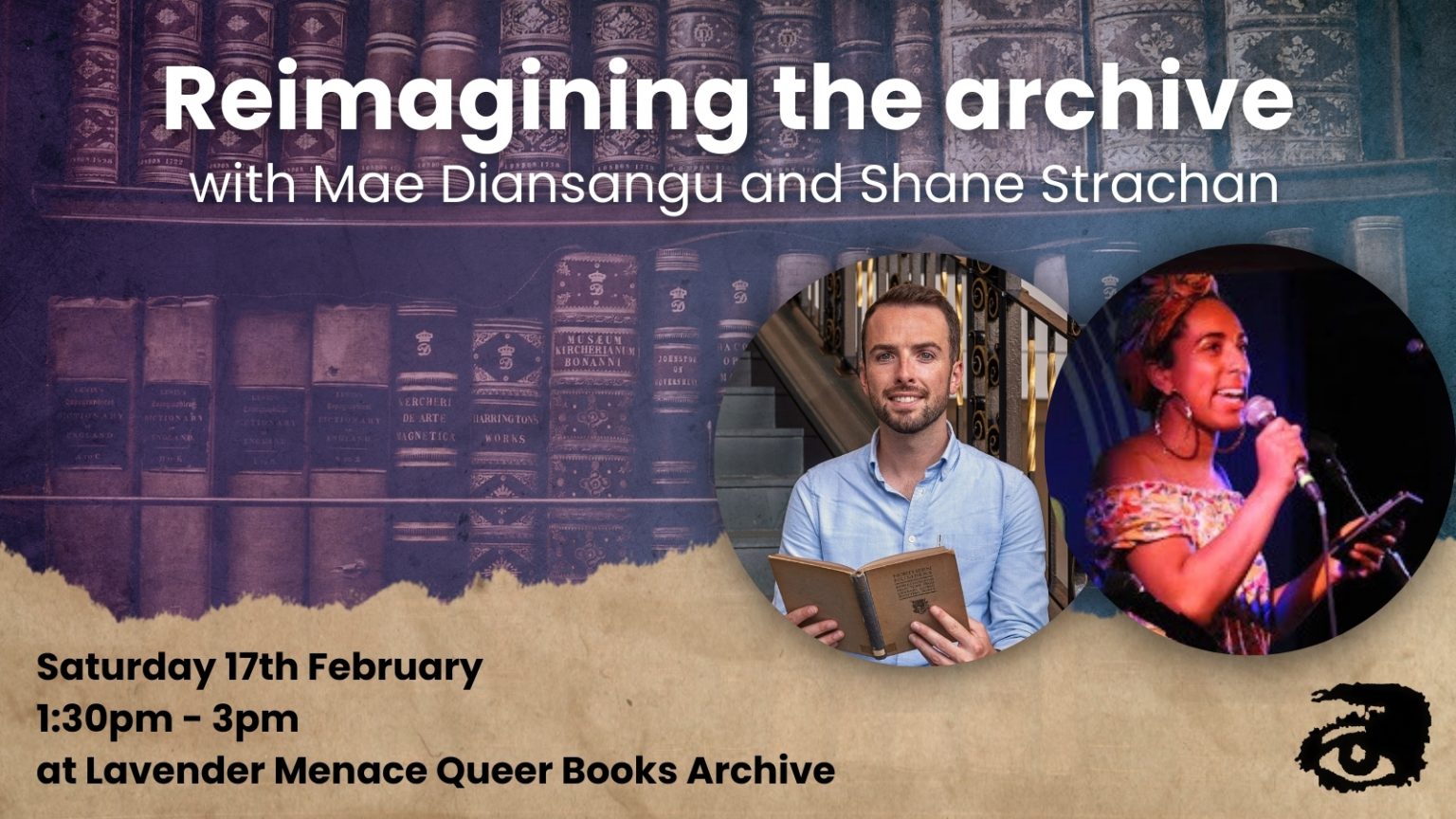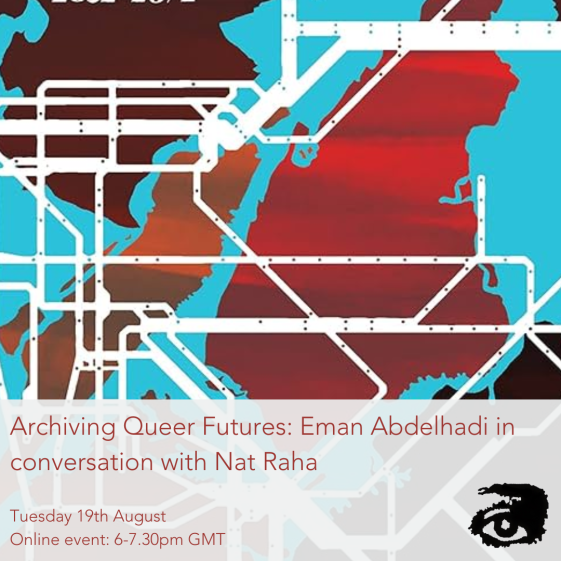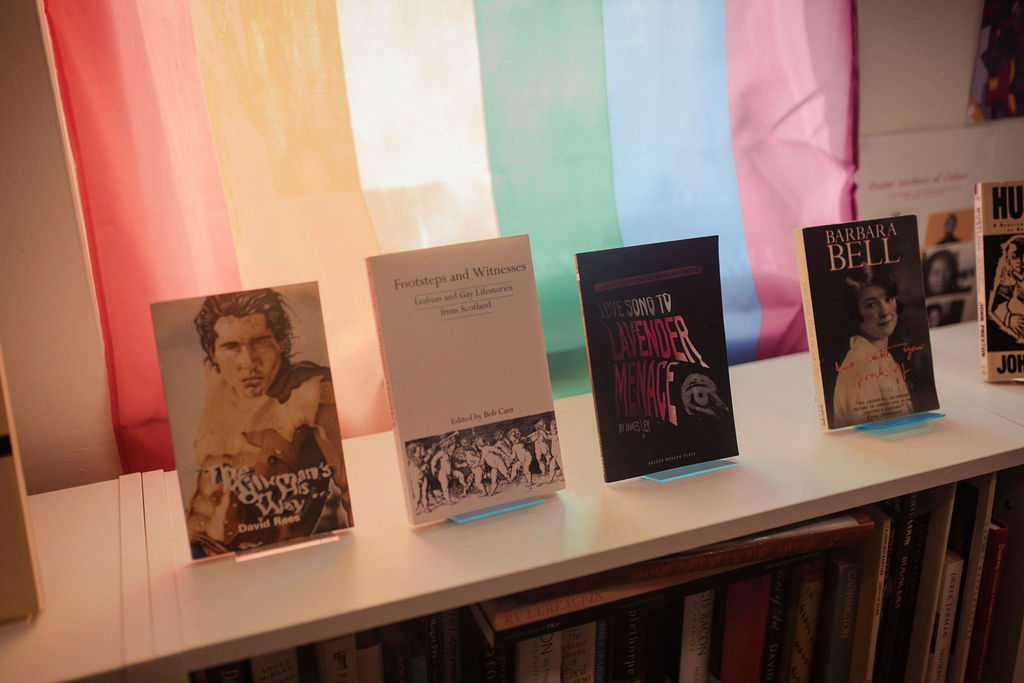Tag: queerarchives
-

Reimagining the Archive with Mae Diansangu and Shane Strachan
You can now watch the recording of this event online Last year, we welcomed Mae Diansangu and Shane Strachan to the Lavender Menace Queer Books Archive for an afternoon of […]
-

Archiving Queer Futures: Eman Abdelhadi in conversation with Nat Raha
You can now watch the recording of this event online. Lavender Menace hosted an online discussion between two activist scholars on imagining and archiving queer futures. Dr Eman Abdelhadi is […]
-
Three Writing Lives
Our second online event Conversations with Writers took place on Thursday 2 September. Playwright Jo Clifford and novelist and short story writer Ely Percy were in conversation with Eris Young.
-
Unsung: the queer books that tell our story – the video
As part of this year’s LGBT History Month, Bob and Sigrid took part in a live webinar conversation on 24 February with Chris Creegan about how queer books tell our […]
-
Hot-Blooded Dinosaurs
The Hot-Blooded Dinosaurs: A Revolution in Palaeontology by Adrian DesmondBlond & Briggs, 1975. QUEER DINOSAUR DISCOVERED! Some people may remember the ITV series based on this illustrated science book, now […]


